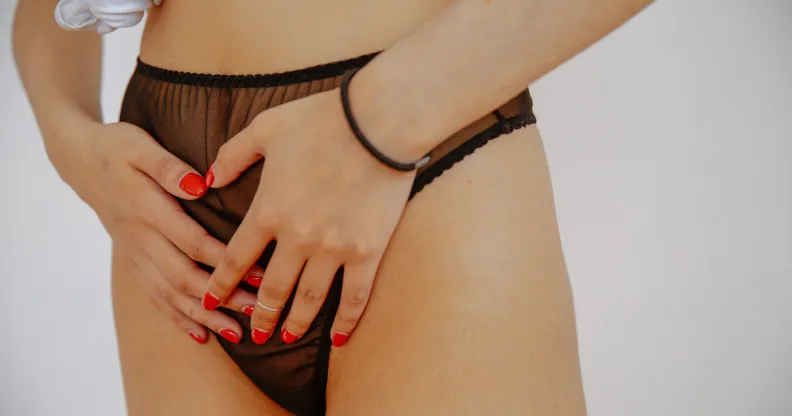A troubling amount of cis lesbians are ‘worried their genitalia is abnormal’

70 percent of cis lesbians “worry that their genitalia is abnormal”. (Polina Zimmerman/ Pexels)
Research has revealed a huge disparity in genital confidence between straight and gay cis women, with seven in 10 lesbians worrying that their genitalia is abnormal.
Bespoke Surgical, a private proctological and anal surgery practice, conducted a survey of 1,155 cisgender men and women over the age of 18 in the US to ask questions about their “feelings on many topics surrounding their genitals: size, shape, having sex, grooming, media, and more”.
Shockingly, the survey found that 70 percent of cis lesbians “worry that their genitalia is abnormal”, compared to just 40 percent of straight cis women.
According to the practice: “Despite the lack of representation of different body types in media, including genitalia shapes and sizes, we found that many people are more satisfied with their genitalia than expected.
“We found that if insecurities about this part of the body do exist, they tend to pop up in certain contexts, such as in the bedroom or in public restrooms.
“Additionally, we found that the largest disparity in genital confidence is not between men and women, but between heterosexual and homosexual people.”
Bespoke Surgical was not able to ascertain why the disparity in confidence surrounding genitalia was so great, but research has shown time and time again that LGBT+ people are more likely to suffer from body image issues, disordered eating and eating disorders.
The practice also suggested that lesbians may feel more insecure about their genitalia “because same-sex relationships leave more room for immediate comparison”.
A lack of representation of different types of vulvas has worrying consequences, and labiaplasty has been dubbed the “world’s fastest-growing cosmetic procedure”.
According to The Vulva Gallery, an educational platform that celebrates “vulva diversity” founded by non-binary illustrator Hilde Atalanta: “All vulvas are unique – just like our hands, noses and eyes are.
“However there’s usually just one kind of vulva shape being displayed in popular media. Whether it is in magazines, mainstream porn, or even biology books, all over the world we are constantly confronted with a distorted image of the ‘perfect’ vulva, presented as ‘normal’.
“This has led many of us (who look different from this ‘perfect’ vulva) to believe that we don’t fit the ‘normal’ image… By showing diversity and openly talking about our experiences and insecurities we can change the way we look at our bodies – and the bodies of others.”

